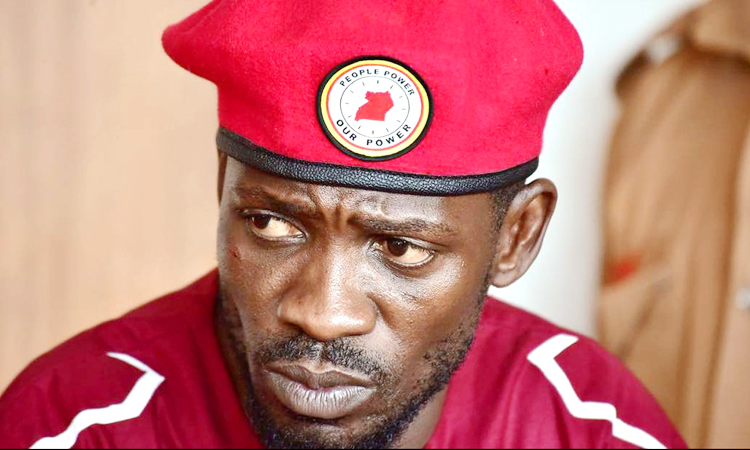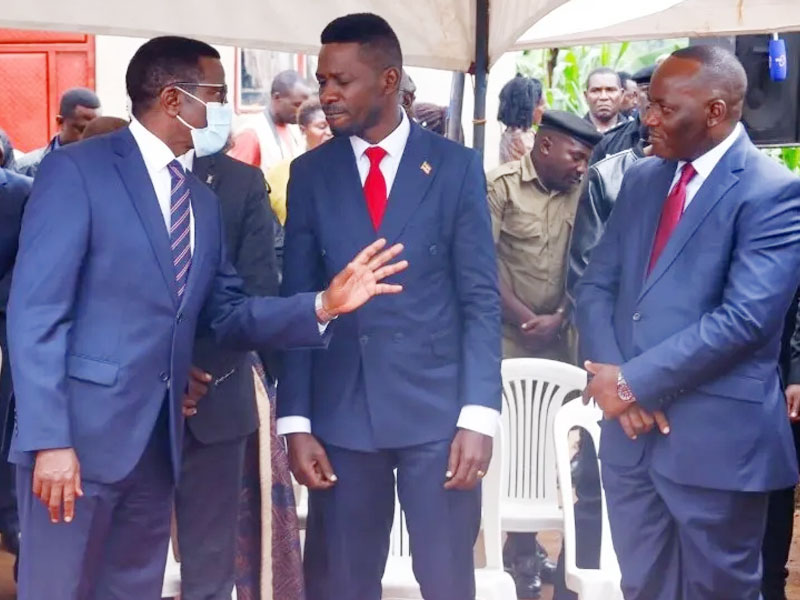Opinion: Bobi Wine had no legal obligation to defend his academic qualifications
By Frank R. Wadidi
 The author Frank R. Wadidi
The author Frank R. WadidiKeep Reading
Over the last couple of weeks, outspoken Lawyer, Hassan Male Mabirizi, kicked off & sustained an interesting storm surrounding the academic qualifications, among others, of Member of Parliament & Presidential Contender, Hon. Kyagulanyi Sentamu.
At the climax of the storm, the Hon. Kyagulanyi issued a formal statement clarifying on, among others, his academic qualifications and particularly when, how and where he attended his Primary School and O-level. But, was the Hon. Kyagulanyi under any legal obligation to clarify on his educational journey? This should be answered by the law governing the academic qualifications for election either as Member of Parliament or President of Uganda. Let’s explore:
Under art.102(c) of the Constitution of Uganda 1995 as amended, a person is qualified for election as President if he is, among others, qualified to be elected a Member of Parliament. This is reenacted in s.4(1)(c) of the Presidential Elections Act, 2005. It follows that the minimum academic qualifications required of a Member of Parliament apply equally to one vying for election as President.
Article 80(1)(c) of the Constitution and s.4(1)(c) of the Parliamentary Elections Act, 2005, govern the academic qualifications for election as Member of Parliament. The two enactments require the person to have completed a minimum Formal Education of A-Level or its equivalent to be eligible for election as member of Parliament.
You may not know, but, the key words in these provisions are “Formal Education”. So, what then constitutes “Formal Education”? In my view, this is a question of context, as we will see shortly.
One context for “Formal Education” is supplied by the Education (Pre-Primary, Primary and Post-Primary) Act 13 of 2008 (call it the Act of 2008). In that Act of 2008, s.2 defines “Formal Education” as a package of learning made available by recognized schools and institutions, following approved curriculum standards and guidelines. Then, s.10 sets up the levels of Education as being pre-primary, primary, post primary and tertiary/university education.
To make sense of the context supplied by the Act of 2008, one must look at the 2006-2010 Regulations and syllabi made under the UNEB Act for that period. It will be noted that Reg.1 premises eligibility for A-Level exams on having sat and passed the Primary Leaving Exams (PLE), among others.
It should therefore be clear that under the 2006/2008 context, attending, sitting and passing the Primary Leaving Examinations is mandatory for one’s subsequent qualifications to be valid. It is a context, we can say, of mandatory levels in the Educational journey. Under this context, you must prove that you attended Primary School and passed the PLE.
There is however a second context to “Formal Education” and this is supplied by the Education Act, Cap.127 of 1970 (call it the Act of 1970), which is the predecessor to the Act of 2008. The Act of 1970 was the legal authority on “Formal Education” until the 2006 & 2008 developments we have discussed above. The Act of 1970 therefore offers a much earlier context.
From cover to cover, the Act of 1970 was silent on attending Primary school and passing the Primary Leaving Examinations as a prerequisite for joining post-primary institutions. This law did not dictate mandatory requirements for one to move from one level of schooling to another. This is undoubtedly the silent context to “Formal Education”.
This silence is reflected further in the UNEB Act, and the regulations made under it before the year 2006. An example is to be found in the UNEB Regulations and syllabi for 1996-2000, which unlike those for 2006-2010 and thereafter, are silent on the prerequisite of passing PLE for eligibility to sit UACE.
This silent context is admitted by the Education Policy Review Commission Report of 1989 also known as “The Kajubi Report”, so named after the Commission Chairperson—the late Prof. Senteza Kajubi. The Kajubi report regretted that Government had not as of 1989 come up with legislation as regards the structures of the different levels of education. This state of affairs did not change until the legislative developments of 2006 and 2008 that we have noted hereabove. Until then, the silent context is undoubtedly notorious.
To harmonize the two contexts of the requisite “Formal Education” at whatever level, the law can be summarised thus:
- If you attended Formal Education before 2006, your A-level standard of Formal education is satisfied on mere proof of having sat UACE or its equivalent. You have no legal obligation to prove the underlying qualifications, because there was no such legal obligation at the time you attended school. You do not need to have even attended Primary School. It cannot be legally fatal that you were only six years of age in senior One, or just nine years old at the time of sitting UCE or aged Eleven at the time of sitting your A-level exams. How practical that may have been, the law as it obtained at the time, is not concerned; and so no one should.
- If you have attended your Formal Education after 2006, it is mandatory that you prove having attended Primary School and sat and passed PLE. Short of this, your O’ level is, what Lawyers will call, incurably defective. Your subsequent A-level, or its equivalent, will suffer the same fate, irrespective of the score. Your proof of attendance of Primary School is non-negotiable.
Marrying the law and the storm, it would appear that Mr Male Mabirizi, to this extent, risks imposing an obligation that is not founded on law in insisting that the Hon. Kyagulanyi should prove, among others, when and if at all he attended Primary School. Imposing such an obligation, the courts of law have warned, is to arbitrarily ascribe retrospective force to the new legislative developments of 2006 and 2008, beyond their express intention to the detriment of existing rights. The election dispute between between Butime Tom and Muhumuza David should have long settled this debate.
The author is a Kampala-based Lawyer & Bar-candidate. frwadidi@ldc.ac.ug


















